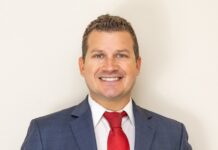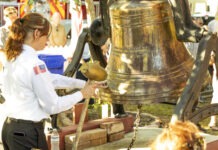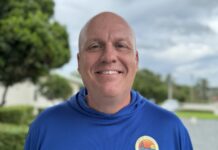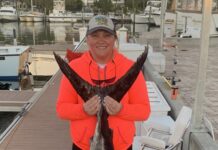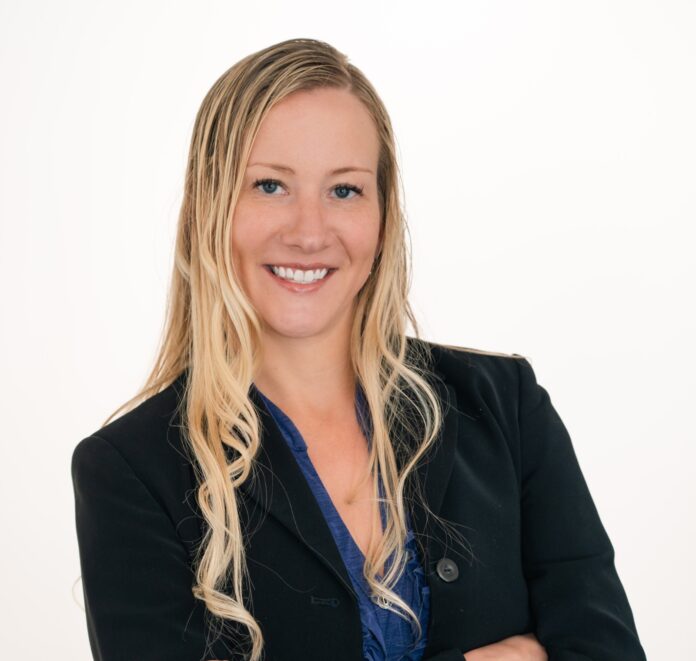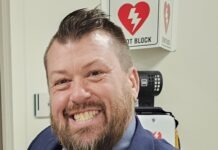From the nurse and the grocer to the teacher and landscaper, the Upper Keys community can’t thrive without the skills and talents of local workers who serve, produce, repair, research, advocate for, fundraise or build. We like to call them the “Mile Makers.”
The fourth “Mile Maker” is Alissa Reckard, a financial adviser based in Tavernier.
What is your official title and what titles/certificates do you hold? I am a financial adviser here in the Upper Keys. I have been in the financial industry for about 22 years and part of this team for 11 years. I am also a certified plan fiduciary adviser, which allows me to create and manage employer retirement plans.
What does it take to become a financial planner? What sort of education does one need? I have a bachelor’s degree with a double major in accounting and business management, with a minor in marketing. After that, I completed the Life & Health Licensing, Series 7, and 66 exams to be an adviser. It makes a great deal of difference if a financial adviser works tirelessly to stay on top of the constantly changing financial, economic, investing and taxation landscape. It is one of those 24-hour careers, but it is also wonderfully rewarding to help families navigate these complicated issues.
When did you first hear about your career? My parents had a financial adviser when I was a child, so I was aware of the career. I have always enjoyed finance, budgeting and investing. I find out what’s important to people, then help manage their assets so they reach their goals. I strive to make sure that my clients always have enough income to maintain their dignity and independence in retirement.
What first sparked an interest in your chosen profession? I became quite independent and self-reliant at an early age and wanted to build a successful career for myself. I will never find a prospect who is planning to fail, but I find hundreds of people who are failing to plan. That is where my skills and knowledge can benefit others. I love working with people. I specialize in financial planning, guiding clients to help them reach their financial goals.
What do your day-to-day duties look like? I have so many daily tasks such as buying and selling securities, verifying clients’ transactions, responding to questions and holding appointments and reviews. Above all, I seek opportunities to speak to others about the importance of approaches to financial planning, and I talk to my clients about their goals, hopes and dreams — what they want their money to do for them.
What is your favorite part of the job? This job gives me satisfaction hearing clients say they are able to live and enjoy the rest of their lives because of the choices I helped them make early on.
What is the least favorite aspect of your career? Although I completely agree with the need for this to be such a highly regulated industry, politicians may sometimes write more laws because of market downturns. Each year it becomes increasingly difficult for ethical, careful and passionate financial advisers to serve their clients.
What is the biggest challenge in your profession?The constant rising cost of everything you need to buy — food, utilities and medical care is a concern for most people. There is a need to keep up with inflation and have an income that rises along with the cost of living. For most people, choosing the right investments could be a challenge. Like a group starting a marathon, you cannot look at the entire crowd and pick out the one winner. But I can tell you that the runners will be first, the joggers will be second and the walkers will come in last. That is what certain types of investments can do.
What are two important characteristics for someone to possess who would like to become a financial planner? Anyone considering becoming a financial advisor should be prepared for hours of research, dedication, marketing and prospecting, along with face-to-face time with hundreds of people.
What is something that others would be surprised to find out about your profession? You don’t need to be good at math. I hear people joke about that a lot, but it’s much more pairing the right type of investment with each client than using a calculator for hours.
Would you say financial literacy needs to be taught in schools? Yes, I have done presentations for middle and high schools, and for scouts. Topics (include) the importance of financial literacy, staying out of debt and knowing what you want your money to do for you. It is so important for kids to develop good financial habits from the beginning. I work with a lot of kids and teenagers as clients and I’m so proud of them.

